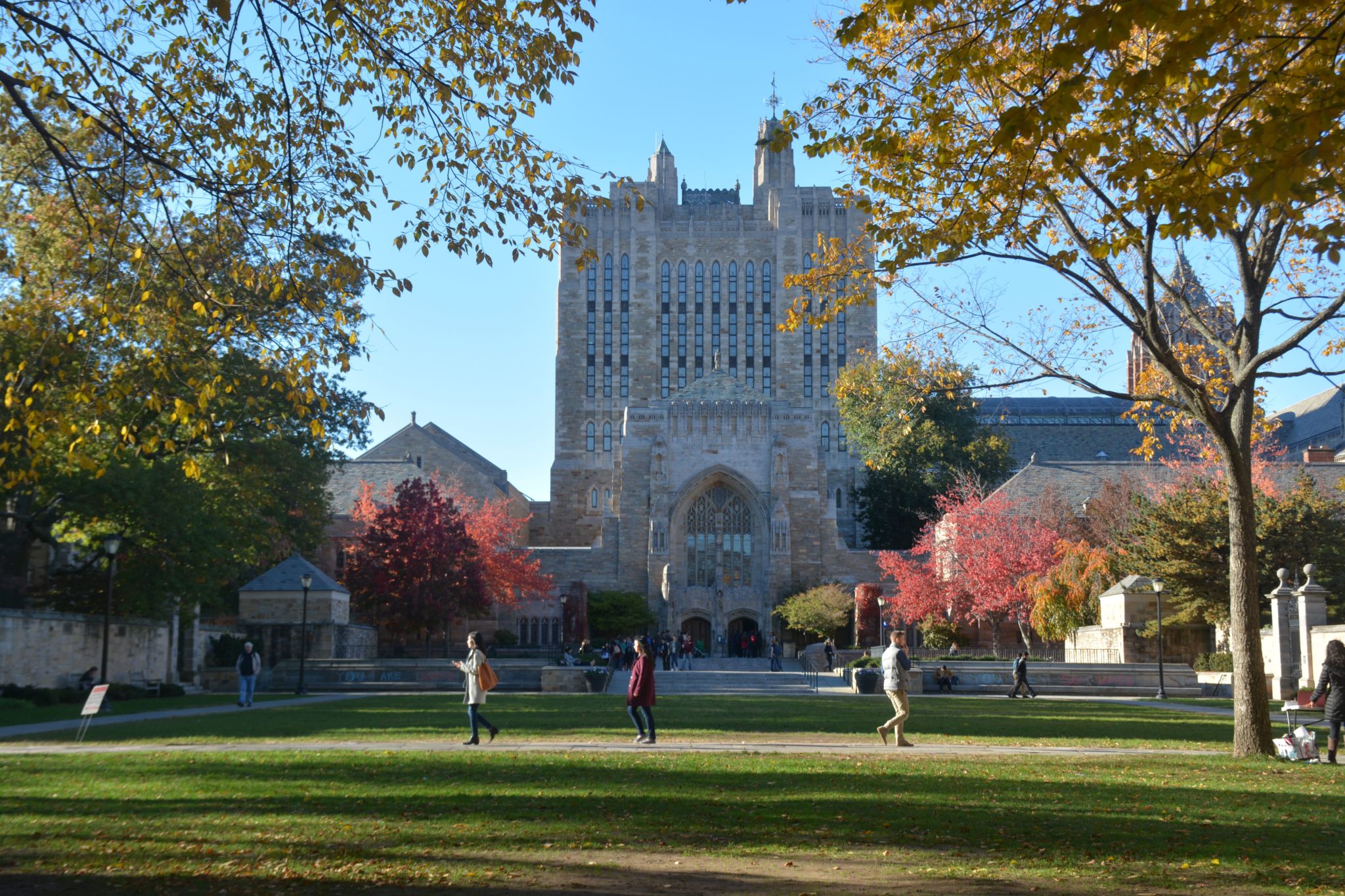
Seven Yalies — four current students and three Yale College graduates — won The Paul & Daisy Soros Fellowships for New Americans, a grant that funds graduate studies for immigrants and the children of first-generation immigrants.
The Yale winners — Camila Bustos LAW ’21, Woong Hwang, GRD ’20, Hilda Huang ’17 MUS ’19, Agata Sorotokin ’19, Viviana Andazola Marquez ’18, Grace Pan ’17 and Alexander Zhang ’18 — are among 30 students selected from a pool of 1,767 applicants. Winners receive up to $90,000 in funding for the graduate program of their choice and join a community of 625 recipients from previous years. Founded by two Hungarian immigrants, Daisy Soros and her late husband Paul, the program “honors continuing generations of immigrant contributions to the United States,” according to a March 29 email.
“Another outstanding year for Yale with this new cohort of impressive Soros Fellows,” said Director of the Office of Fellowships Programs Rebekah Westphal. “It is also great to see so many recent Yale College alumni and a current senior in the group.”
An American studies major and photographer whose parents hail from China, Zhang, who will start a joint J.D./Ph.D program in history at Yale next fall, said that he hopes to bridge constitutional law with ethnic studies while working on his graduate degrees.
He added that during his time at Yale, received a fellowship from the Center for the Study of Race, Indigeneity, and Transnational Migration to investigate ideas of race and law in the American South. Zhang also helped organize efforts to rename Calhoun College after Roosevelt Thompson ’84 in 2016.
“I’m indebted to Yale’s ethnic studies faculty as well as generations of students — especially women of color — who have advocated for the field, taught me about the meanings of ‘New American,’ provided mentorship and invisible labor, and given me chances I didn’t deserve,” Zhang said.
A first-generation immigrant who lived in Korea until the age of 15, Hwang is studying the genetic causes for a birth defect that affects heart development as well as numerous cancers.
He said that cultural and language barriers initially posed a challenge to him after moving to the U.S. But soon he discovered his “advantage as an immigrant.”
“I have an uncolored outlook towards others and a fresh perspective that allows me to approach people and situations in an unbiased manner,” he told the News. “As a consequence, I believe my ability to embrace multiple cultural identities, coupled with the cultural competences I have developed as a new immigrant, has helped me cultivate the mindset of a physician-scientist, the career path that bridges the knowledge of science with the empathy required of a clinician to improve patient care in medicine.”
Sorotokin, who will graduate from Yale this spring and is a celebrated pianist, plans to pursue a master’s degree in piano performance at Stony Brook University. Her parents are Russian engineers who emigrated from Moscow after the dissolution of the Soviet Union.
She will graduate with a degree in comparative literature and is writing her thesis on translating Russian poetry and composing music based on the texts.
“Words cannot properly describe how grateful I am to have received a [Paul & Daisy Soros Fellowships for New Americans fellowship],” she wrote in an email to the News.
Huang, the daughter of Chinese and Taiwanese parents, is also involved in piano playing. Notably, in 2014, she was the youngest competitor, the first American and the first person of Asian descent to win the Leipzig International Bach Competition. At Yale, she majored in chemistry and briefly worked as an assistant on a Stanford cardiothoracic transplant team.
She is expecting to receive her master’s degree at the Yale School of Music in May and will use the money from the fellowship to pursue a doctoral degree in piano performance from Yale.
Bustos, who was born in Colombia, moved to the U.S. when she was 13. As an undergraduate at Brown, she double majored in environmental studies and international relations. Her work at the Law School focuses on immigration rights and climate justice, according to a Yale press release.
Marquez, whose parents were undocumented immigrants from Mexico, saw her mother detained by U.S. Immigration and Customs Enforcement officials when she was 12. After her father was deported early last year, the Yale community responded with several months of protests calling upon ICE officials to free him during the prominent “Free Melecio” campaign. At Yale, she majored in ethnicity, race and migration and worked on issues related to education access for first-generation, low-income students. She plans to become an immigration and civil rights attorney after studying at the Law School, according to a Yale press release.
Pan, whose parents immigrated to the U.S. from China, earned a degree in physics from Yale. She is now a Harvard graduate student studying quantum materials. According to the Yale press release, she aspires to become an experimental physicist and professor.
Huang, Bustos, Pan and Marquez could not be reached for comment.
Skakel McCooey | skakel.mccooey@yale.edu
Clarification, April 25: This story was updated to clarify that Alex Zhang ’18 did not work “actively” with the RITM to study race and law. Rather, he was the recipient of a summer research fellowship from the RITM. The story also specified that the Calhoun College after Roosevelt Thompson ’84 in 2016.







